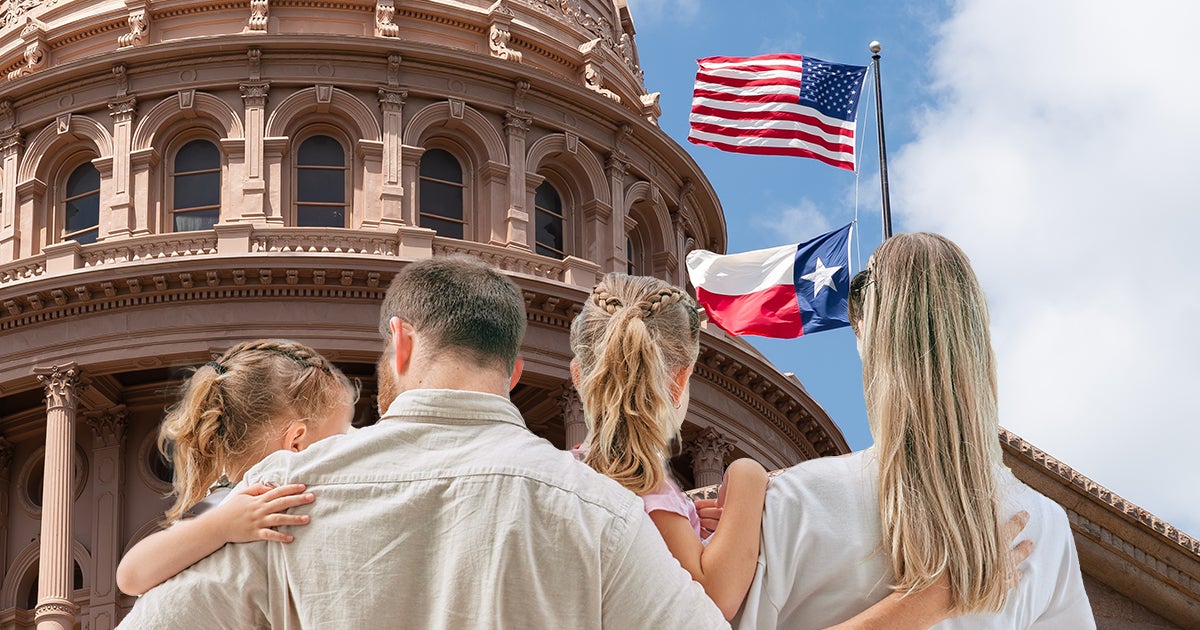
by Jeremy Newman, Guest Writer • 4 minutes
On November 4, Texas did something no other state in the US has ever done: It explicitly enshrined into the state constitution the fundamental right of parents to raise their children.
Although Proposition 15 passed with a wide margin at the ballot box (70% to 30%), given the relatively little fanfare that it received in our oversaturated news cycle, one might be forgiven for missing it entirely.
But this moment should not be understated. Texas is now the first state in the country to have this right enshrined in the state constitution, placing its legal existence firmly beyond the changing political winds.
Many Americans are at least vaguely aware of the sentiment expressed by Vladimir Lenin when he reportedly said, “Give me four years to teach the children, and the seed I have sown shall never be uprooted.” For an American, such a sentiment can easily receive the sort of dismissive hand-waving that we often reserve for crazy things said by authoritarian murderers from other countries.
We know conceptually that control of the next generation is an absolutely foundational issue. But in America, we often view ourselves as somewhat impervious to the fundamental failures that have afflicted other countries.
How many Americans could tell you about the Siman Act of 1919, which made it illegal in Nebraska for any child to be taught in a foreign language in any public or private school?
How many would know the story of the Oregon School Bill of 1922, which banned any student in the state of Oregon from attending private school at all?
These laws weren’t passed in Soviet Russia. The Siman Act of 1919 was passed by a Republican Legislature in the freest country in the world. The Oregon School Bill, banning private school attendance in Oregon completely, was passed at the ballot box by a majority of the voters in the state.
If we are tempted to believe that we have outgrown such statism in the 100 years since those events took place, we need look back only 4 months to the U.S. Supreme Court’s opinion in Mahmoud v. Taylor. There, the Montgomery County Public Schools in Maryland had mandated the reading of sexually sensitive material to all students 5-to-11-years-old.
As it did with the Siman Act and the Oregon School Bill, the Supreme Court intervened in Mahmoud v. Taylor and ruled that parents have a fundamental right to make decisions for their children. Availability of a public benefit, the court stated, such as public school attendance, “cannot be conditioned” on the parents first surrendering their right to direct their child’s religious upbringing.
It is tempting – very, very tempting – to take the wrong lesson from these pivotal legal stories. For those of us whose sincerely held religious beliefs motivate us to raise our children in a certain faith tradition, stories such as these naturally prompt a strong resistance to an outside party – especially the state – teaching our children something “false.”
As a result, a judicial decision that ejects the state from its interference in the parent-child relationship may feel to us like a vindication of our worldview.
But this reaction misses the point. In Mahmoud v. Taylor, the three families seeking relief from the U.S. Supreme Court came from three different faith traditions: Ukranian Orthodox, Roman Catholic, and Musilim.
The fundamental legal issue is not whether the school or any of these three families were teaching the “correct” opinions. The critical issue is not about who is correct, but about who decides.
In Leninist Russia, Republican Nebraska, and Democrat Oregon, the answer was that the state makes these decisions. But America is situated in a legal tradition unique among many countries of the world – one where parents, not the state, are recognized as having the unique, God-given responsibility to raise children.
This was the basis of the U.S. Supreme Court’s intervention in each of the cases mentioned above. But until now, no state constitution in the United States has expressly protected this fundamental right of parents. Instead, we have relied for centuries on courts to “do the right thing” by recognizing and protecting the right of parents as a sort of constitutional/philosophical inference–despite it not being written in any constitution anywhere.
We are preserving for future generations the foundational truth that parents, not the state, are vested with the unique, God-given responsibility to raise children. In the words of the new Texas Constitution, parents have the “fundamental right to exercise care, custody, and control of the parent’s child, including the right to make decisions concerning the child’s upbringing.”
As a result, we have now placed the rights of families on the most unshakable legal ground available in a free society. May other states soon follow.
Jeremy Newman currently serves as Vice President of Policy at the Texas Home School Coalition and the Family Freedom Project, where he oversees all legislative, political, and litigation-related efforts. He received his Juris Doctor from Oak Brook College of Law and has over a decade of legal and legislative experience.